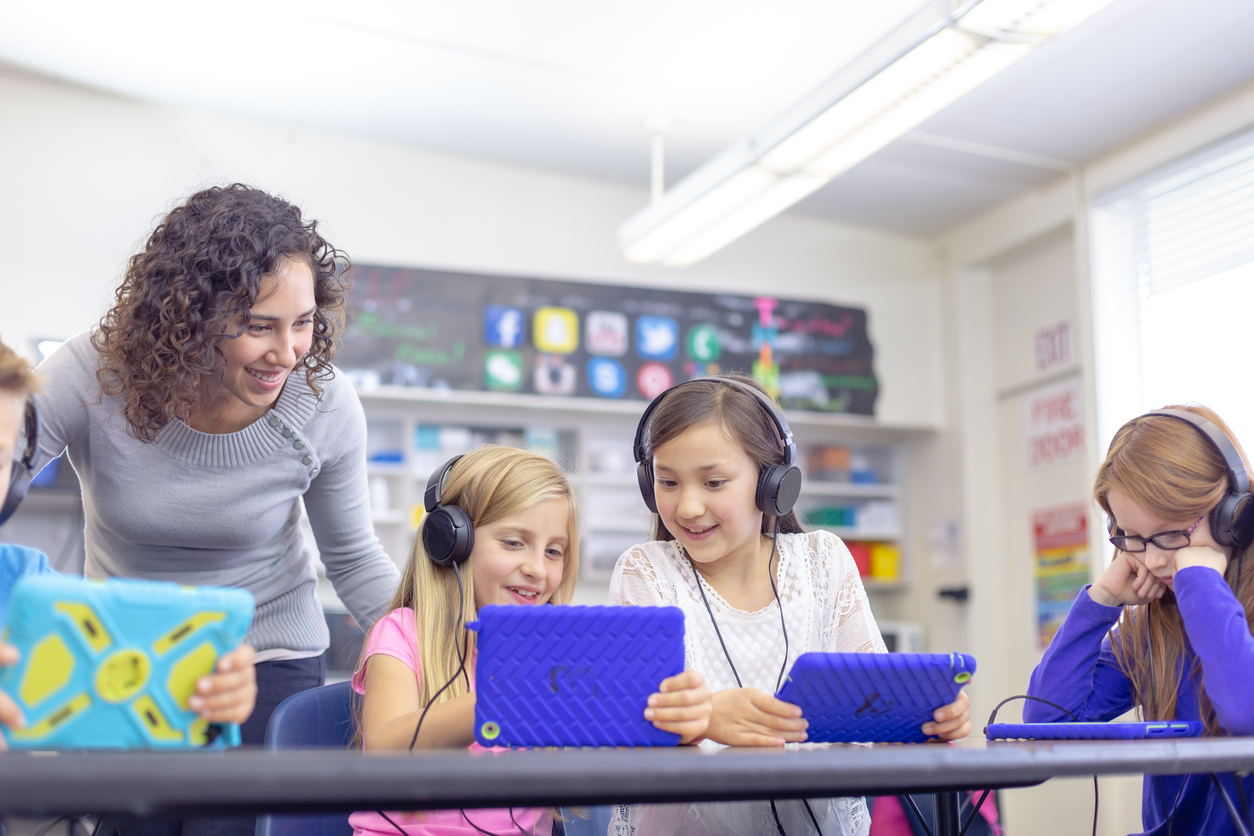Unlock Your Child’s Potential with Primary Science Tuition Singapore
Unlock Your Child’s Potential with Primary Science Tuition Singapore
Blog Article
Discovering the Different Mentor Strategies in Main Scientific Research Education Today
The landscape of main scientific research education is advancing, with numerous mentor techniques acquiring prestige in contemporary classrooms. Inquiry-based learning, hands-on experiments, and the integration of innovation are redefining how instructors involve young minds. Furthermore, collective methods and differentiated guideline are being used to provide to the diverse demands of students, boosting both interaction and understanding. As we take a look at these methodologies, inquiries develop concerning their efficiency and the ramifications for future academic practices. What might these changes in approach mean for the future generation of students?
Inquiry-Based Understanding
Inquiry-Based Discovering (IBL) is a pedagogical method that encourages students to check out clinical concepts through questioning, examination, and hands-on trial and error. This approach emphasizes the duty of pupils as energetic participants in their learning, promoting critical thinking and problem-solving abilities. By engaging with real-world inquiries, students end up being determined and interested, which boosts their understanding of clinical concepts.
In IBL, educators act as facilitators, leading students as they browse their questions as opposed to supplying details straight. This student-centered approach enables differentiation, accommodating different finding out rates and styles. Trainees develop skills in developing hypotheses, creating experiments, and analyzing information, which are important for clinical literacy.
Additionally, IBL fosters partnership amongst pupils, urging them to share searchings for and concepts. This cumulative questions advertises social abilities and a feeling of area within the class. The procedure of inquiry encourages strength, as pupils learn to embrace failure as a stepping stone toward understanding.
Hands-On Experiments
Hands-on experiments are an essential element of effective science education, enhancing the concepts of inquiry-based learning. These experiments allow pupils to engage straight with scientific principles, fostering a much deeper understanding through experiential learning. By adjusting materials and observing end results, young learners can grasp abstract theories in substantial means.
Such activities promote crucial thinking and analytic skills, as trainees assume results, conduct experiments, and analyze results. This process motivates them to ask inquiries, fine-tune their understanding, and develop a scientific frame of mind. Hands-on experiments can be tailored to varied learning designs, guaranteeing that all pupils have the possibility to involve meaningfully with the material.
In addition, hands-on experiments typically encourage cooperation among peers, advertising teamwork and interaction skills. Operating in teams makes it possible for pupils to share concepts, talk about findings, and gain from one an additional, which improves their total academic experience.
Including hands-on experiments into the primary scientific research curriculum not only enhances the finding out atmosphere however also cultivates a long-lasting interest in science. By actively participating in their education and learning, trainees are more probable to develop a passion for scientific query that prolongs beyond the classroom.

Innovation Integration
Integrating technology right into key scientific research education has become increasingly necessary in promoting pupil interaction and boosting discovering end results. Making use of electronic devices, such as interactive simulations, digital laboratories, and educational software, offers pupils with opportunities to explore scientific concepts in cutting-edge methods. These resources facilitate a much deeper understanding of intricate subjects by enabling students to envision and manipulate variables that would be unwise in a standard class setup.
Additionally, modern technology combination encourages individualized finding out experiences. Pupils can progress at their very own pace, taking another look at difficult ideas through multimedia resources, which satisfy various discovering styles. This adaptability not just supports private development yet additionally cultivates a sense of autonomy in learners.
In addition, modern technology functions as a bridge to real-world scientific research, linking students with current research study and specialist payments. Access to scientific journals and online data sources broadens pupils' point of views on clinical inquiry and cultivates critical assuming abilities.
Collaborative Learning
Collective discovering plays a vital role in main science education and learning by cultivating team effort and communication abilities among trainees. This strategy encourages students to function with each other, share expertise, and engage in analytical, which enhances their understanding of scientific ideas. By joining group activities, students find out to verbalize their ideas, listen to diverse point of views, and work out services, every one of which are important abilities in both scholastic and real-world contexts.

Research shows that collaborative understanding can lead to raised motivation and engagement in science subjects, as pupils discover pleasure in shared experiences (primary science tuition Singapore). In addition, this method prepares pupils for future collaborative undertakings, equipping them with the skills needed for effective teamwork in college and specialist environments. Ultimately, welcoming joint learning in main scientific research education and learning can considerably enrich the understanding experience and advertise a deeper understanding of clinical questions
Distinguished Guideline

Separated over here direction can manifest in different ways, such as differing the material, procedures, or items of understanding. As an example, educators may make use of tiered projects that supply differing levels of intricacy, enabling students to operate at their respective readiness levels. Additionally, adaptable grouping techniques can promote cooperation amongst trainees with different capabilities, cultivating peer understanding.
Analysis plays a crucial function in this method, as it informs guideline and helps instructors understand each pupil's special demands. Formative assessments, such as quizzes and monitorings, can guide instructors in changing their strategies to improve finding out end results. primary science tuition Singapore. Eventually, by carrying out differentiated guideline in key scientific research education, instructors can grow a much more efficient and equitable learning setting, empowering all pupils to reach their complete possibility in understanding scientific sensations
Conclusion
In recap, the varied teaching techniques in key science education, consisting of inquiry-based understanding, hands-on experiments, innovation combination, collective learning, and distinguished guideline, jointly contribute to a more effective discovering environment. These methods advertise crucial reasoning, problem-solving abilities, and a deeper understanding of clinical ideas. By carrying out these strategies, instructors can develop interesting advice and encouraging class that resolve the varied needs of trainees, ultimately promoting a lifelong rate of interest in scientific research and improving academic success.
Inquiry-Based Understanding (IBL) is an instructional technique that urges students to check out scientific principles via doubting, investigation, and hands-on experimentation.Collective understanding plays a crucial role in primary science education and learning by fostering team effort and communication skills amongst pupils.Research shows that collective learning can lead to raised motivation and involvement in scientific research subjects, as pupils discover enjoyment in common experiences.In promoting a comprehensive discovering atmosphere, set apart instruction emerges as a vital technique to suit the varied needs and abilities of trainees in primary science education and learning. Inevitably, by implementing distinguished direction in primary scientific research education, instructors can grow a more fair and effective you can try here learning setting, empowering all students to reach their complete capacity in comprehending clinical phenomena.
Report this page